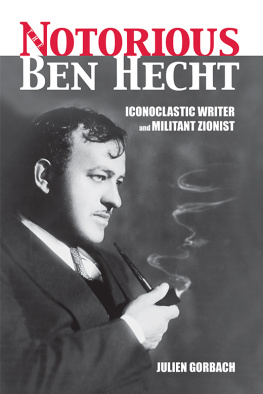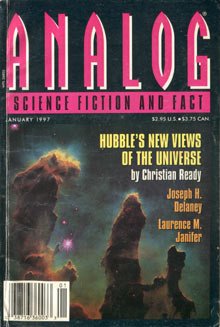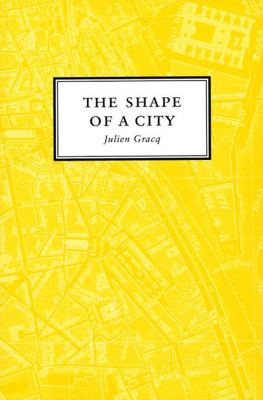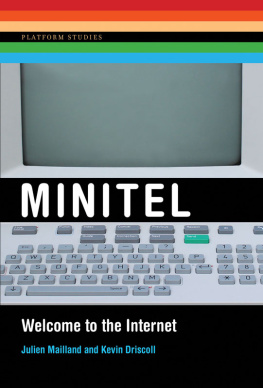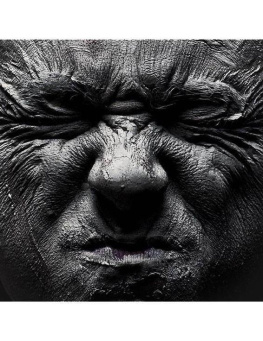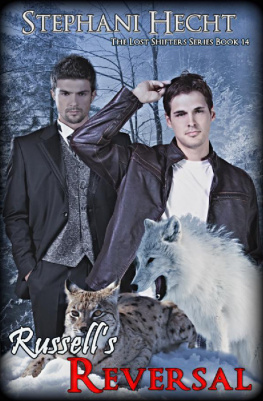In The Notorious Ben Hecht: Iconoclastic Writer and Militant Zionist, Julien Gorbach highlights the character, the motivations, and the involvement of an engaged intellectual, crossing from the world of words into that of assertive advocacy on behalf of a cause deemed too narrow for the milieu in which he was a major element. In focusing on this facet of the life of one who was a borderline American Jew, Gorbach not only details the personal biography of Hecht as Hollywood screenwriter, playwright, and novelist, but in his treatment of Hechts activities on behalf of the Jewish resistance in Mandate Palestine against the oppressive British rule, he retrieves that period of Israels history shunted aside due to ideological and political bias, the years of the national liberation struggle prior to the establishment of the state that have been subjected to a campaign of purposeful neglect and which affected Hecht as well.
Yisrael Medad, Research Fellow,
Menachem Begin Heritage Center, Jerusalem
With storytelling skills equal to his subjects, Julien Gorbach shows the nuance and complexity of Ben Hechts transformation from secular and cynical Hollywood script doctor to committed Zionist activist attempting first to save the Jews of Europe during World War II, and then to found the state of Israel. Gorbachs deeply researched and vivid depiction of Hechts work on behalf of Jewish survival and freedom features a compelling cast of characters, from stateside intellectuals and entertainers to American Jewish gangsters and Irgun rebels against British rule. The Notorious Ben Hecht rewards readers as much as Hechts own films, plays, and novels do.
Bill Savage, Professor of Instruction, Northwestern University
The Notorious Ben Hecht
Copyright 2019 by Purdue University.
All rights reserved. Printed in the United States of America.
Cataloging-in-Publication data is on file with the Library of Congress.
Paper: 978-1-55753-865-9
ePDF: 978-1-61249-594-1
ePub: 978-1-61249-595-8
Cover image: Ben Hecht, half-length portrait, facing right, smoking pipe. Photo by George Maillard Kesslere, 1931, courtesy of the Library of Congress (LC-USZ62-111023).
The Notorious Ben Hecht
Iconoclastic Writer and Militant Zionist
Julien Gorbach
Purdue University Press
West Lafayette, Indiana
To Buster and Alley
(19992013)
Who taught me so much about
innocence and love.
Rest in Peace
To say that force is sometimes necessary is not a call to cynicismit is a recognition of history; the imperfections of man and the limits of reason.
But we do not have to think that human nature is perfect for us to still believe that the human condition can be perfected. We do not have to live in an idealized world to still reach for those ideals that will make it a better place.
For if we lose that faithif we dismiss it as silly or nave; if we divorce it from the decisions that we make on issues of war and peacethen we lose what is best about humanity. We lose our sense of possibility. We lose our moral compass.
PRESIDENT BARACK OBAMA, NOBEL PRIZE FOR PEACE
ACCEPTANCE SPEECH, NOVEMBER 10, 2009
All my life I have been haunted by a phrase read in my youth in one of Joseph Conrads booksthe soul of man. I grew up with this phrase tugging at my elbow. And I secretly measured literature, people and events by whether or not the soul of man was in them.
The soul of man meant to me the urgent rivers of emotion on which humans have always traveledthe dark torrents of mania, greed and terror; the bright streams of love and brotherhood. Beyond the monkeyshines of his politics and the inanities of his verbal worlds, this soul of man has beckoned my attention, stimulating and horrifying me and occasionally filling me with pride.
BEN HECHT, A CHILD OF THE CENTURY, 1954
Contents
Part I THE NEWSPAPERMAN
The Chicago School of Journalism
Part II THE WRITER
The Chicago Renaissance and Hollywood
Part III THE ZIONIST
From Humanist to Public Enemy
Part IV THE MEMOIRIST
Writing about L.A.s Al Capone
Any American born after 1900 and before, say, 1960 would have found it difficult to escape the influence of Ben Hecht. For at least half of what has so often been called the American Century, he must have seemed ubiquitous. Hecht was surely among the most prolific writers of his time; he was unstoppable. He also operated in so many genres that one lifeno matter how colorful, no matter how fullbarely seems to have encompassed what he achieved, in journalism, in literature, on the screen, and in polemics. Yet until nowthat is, until the publication of Julien Gorbachs lively biographical studyHecht has eluded the grasp of scholarship. Once so pervasive and fertile a figure in the mass media, he has suffered from the neglect that he hardly merited. The Notorious Ben Hecht is thus a welcome corrective.
Several reasons for the academic indifference of recent decades can be proposed here. As a writer, Hecht produced his greatest and most enduring work in Hollywood, where scenarists from the birth of the sound era to the death of the studio system were subjected to contempt (schmucks with Underwoods, in the mogul Jack Warners famous dismissal). Film credits in the decades when Hecht was producing an endless stream of scripts (Gorbach stopped counting after 140 or so) are quite unreliable, and the retrospective determination of who-did-what in a collective enterprise is often a mugs game. Even Hechts most famous play, the actor-proof comedy, The Front Page (1928), brandished a collaborator (Charles MacArthur). Because Hecht fancied himself writing for the money rather than for posterity, he left a thin paper trail after hed cashed his checks. He was, moreover, so fluent a storyteller that later researchers may have felt intimidated by the competition; who could match the lip-smacking mirth with which Hecht recalled (or fabricated) the highlights of his own life, especially in A Child of the Century (1954)?
A final conjecture for the frustrations in recounting his influence and importance is the enigma of his Jewishness. Until 1939, as Gorbach notes, Hecht came across as the hack who played to popular tastean extremely skilled and savvy hack, to be sure, but not exactly someone to reach for gravitas. The unprecedented menace of Nazism, and then the struggle for Jewish statehood, made Hecht aware of the pertinence of the Jewish fate to the soul of man, and turned his life in a direction that could hardly have been foreseen in the raucous days and nights in Chicago and then Hollywood. The two previous books that delve most deeply into Hechts career (published in 1977 and 1990) are quite inadequate in explaining the forcefulness of his anti-Nazism and his pro-Zionism. The extent to which Gorbach addresses Hechts politicization in the decade of the 1940swhen it countedmay be the greatest achievement of this book, which is the first that an academic has written and by far the richest that anyone has written. He is now spared the obscurity that he risked falling into, the paradox of a prominence that once was his. The horror of the Holocaust and the rebirth of a sovereign state constitute the two most significant events of modern Jewish history, and Gorbach has entwined Hecht in both of them.
A foreword should not come with a spoiler alert, so I wont dwell on the adroitness with which Gorbach brings to life the career of this amazing litterateur. But I must record the luck of Ben Hecht in having so tenacious a researcher and so elegant a writer in making this bon vivant and provocateur pertinent to a new generation of readers.

